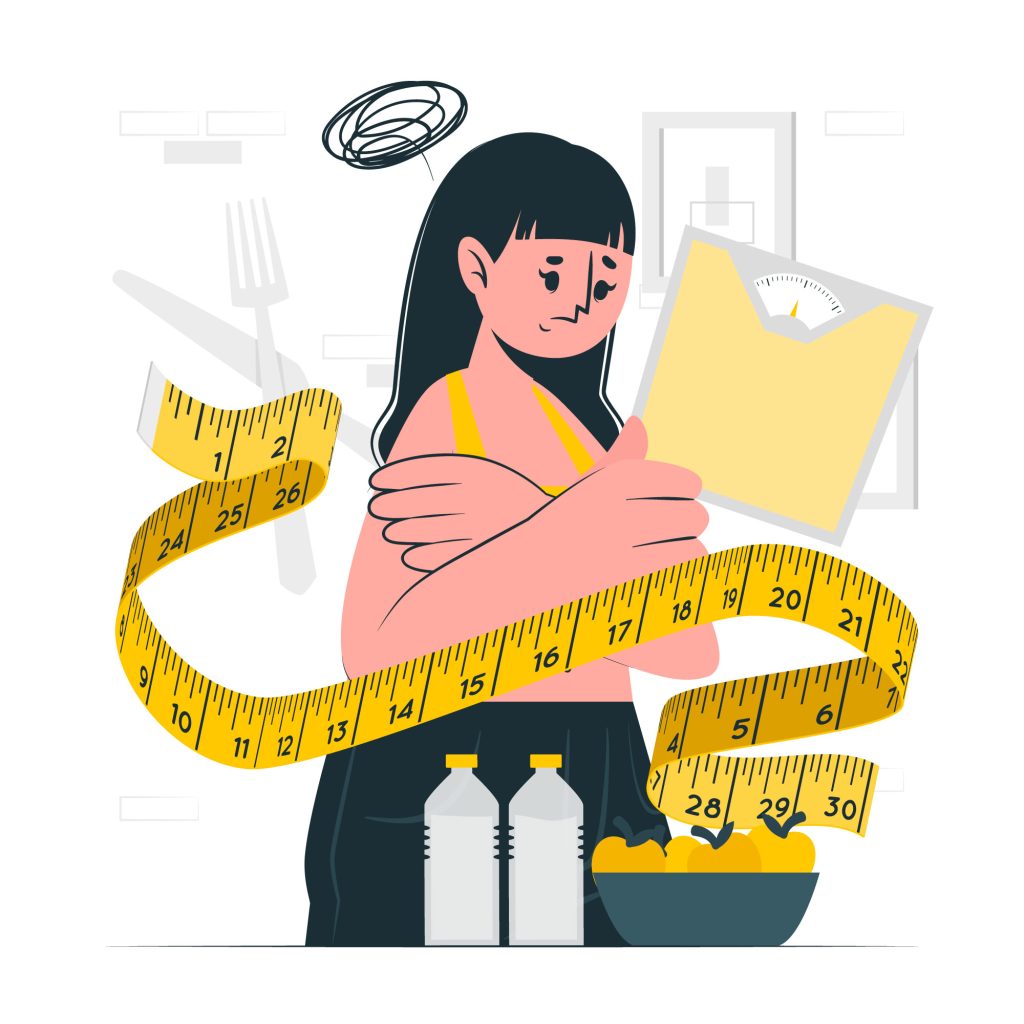
Bulimia nervosa, often called “bulimia” is another serious eating disorder that we want to shed light on. It’s not always easy to spot, and it’s important to know what it is and how it might affect someone you know.
What is Bulimia Nervosa?
Bulimia is when someone alternates between strict dieting and binge eating. Binge eating means eating a large amount of food in a short time, feeling like you can’t control it. These binges often happen secretly, and people may feel ashamed or embarrassed afterward. Binges can be enormous, leading to discomfort and even nausea.
Hidden Struggles
Bulimia isn’t always about being underweight; it can affect people of different body sizes. This makes it tricky to notice in others because they might not appear underweight. People with bulimia often hide their behaviors well, making it hard for friends and family to see the signs.
Possible Signs
Here are some signs that someone may have bulimia nervosa:
- Frequent bathroom trips right after meals
- A lot of food disappearing or finding empty wrappers and containers
- Chronic sore throat
- Swollen salivary glands in the cheeks
- Dental problems due to stomach acid eroding tooth enamel
- Heartburn and stomach issues
- Misuse of laxatives, diet pills, or diuretics
- Feeling dizzy or fainting from purging behaviors
Complications
Bulimia can lead to severe health problems, including tears in the esophagus, stomach ruptures, and dangerous heart rhythm issues. It’s crucial to get medical help if needed.
Getting Help
If you or someone you know is dealing with bulimia, it’s essential to seek help. The most effective treatment is cognitive-behavioral therapy, which helps normalize eating behaviors and manage thoughts and feelings linked to the disorder. Sometimes, antidepressant medications can be helpful as well. For young people with bulimia, family-based treatment can be beneficial.
Remember
Bulimia is a real and challenging issue, but understanding it is the first step to supporting yourself or someone else. You don’t have to face it alone. Reach out to a trusted adult, teacher, or counselor for help. Let’s create a safe space to talk about these issues and support those who need it. Together, we can overcome the challenges of bulimia nervosa.